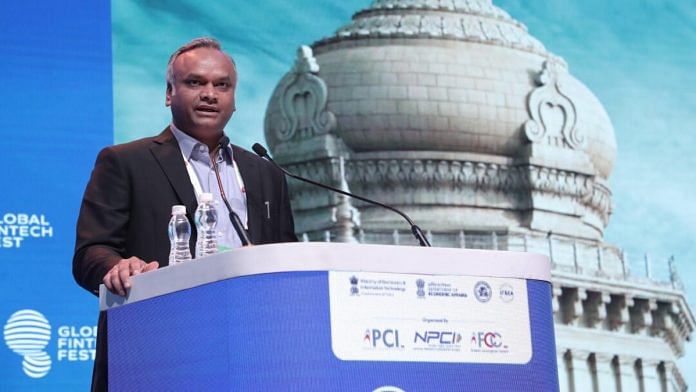Bengaluru: The Karnataka government has drafted a ‘practical framework’ for its fact-checking initiative that will include members of the police department, government officials, legal experts, academia and members of civil society.
Loosely termed the ‘misinformation combat cell’, the unit will work to debunk ‘misinformation’ as well as actively pursue those who spread ‘disinformation’ and ‘mal-information’, the government said.
The initiative was first announced in mid-August and since then has become a point of concern among the larger public as well as the media fraternity, with the fear of such provisions being used to stifle dissent and gag news outlets.
“We are not here to either control the public narrative, or the media narrative. Nor are we here to regulate anybody. If anything (information) is shared on public platforms, all we are saying is to see if it is the truth or a lie,” Priyank Kharge, Karnataka’s minister for Information Technology, Biotechnology (IT/BT), Rural Development and Panchayat Raj (RDPR), told reporters in Bengaluru on Thursday.
According to Kharge, the fact-checking unit will have an “oversight committee”, which will help different departments of the government work in tandem and ensure that the unit has adequate checks and balances.
An additional director general of police (ADGP)-ranked police officer, the additional advocate general, senior government officials and representatives from civil society, among others, will be part of the committee.
The public can flag any information to the unit, which will be analysed by the committee. All the information will be reviewed by the Superintendent of Police (Intelligence) or any other person decided by the home department.
Another layer of this committee will involve the use of empaneled fact-checking agencies who will actively scour the internet for any doctored posts meant to cause harm in general and share it with the government. After reviews and the final conclusion, the government will decide if it warrants legal action or just take down the post.
The minister also defined what would be classified as misinformation, disinformation and mal-information.
“Mal-information is when genuine information is shared to cause harm by moving information designed to stay private into (the) public sphere,” Kharge said.
Misinformation, he said, is sharing false information with no harm meant, while disinformation is when false information is knowingly shared to cause harm.
The minister, in his presentation to the media, shared a screenshot of a December 2017 Twitter (now X) post by Bharatiya Janata Party (BJP) leader Arvind Limbavali, saying that a 21-year-old Hindu man (Paresh Mesta) had been tortured to death. Communal tensions rose in the aftermath, but the then Congress-led state government put out a detailed autopsy report of Mesta, rebutting the allegations of torture. The CBI, in its closure report filed in Mesta’s case last year, stated the cause of death as “ante-mortem drowning”.
Also Read: INDIA parties to blacklist some TV news anchors, not send representatives to their shows
‘Won’t be used for party politics’
Kharge asserted that the framework would be used only as a deterrent and wouldn’t be used for topics relating to party politics. “Apolitical and unbiased” is among the six guiding principles listed out in the framework.
With over 600 million internet users in India, there has been increasing scrutiny of online content by the Union and state governments, he said. Last week, the state government had filed a police complaint against Aaj Tak news anchor, Sudhir Chaudhary, for “conspiring to disrupt communal harmony”.
Kharge maintained that the new unit was not meant to go after any person or organisation, but only to red-flag any false information and take action if this was spread with “mal-intent”.
The Editors Guild of India had voiced its concerns about the initiative after it was announced last month.
“While admittedly there is a problem of misinformation and fake news, especially in the online space, efforts to check such content have to be by independent bodies that are not under the sole purview of the government, lest they become tools to clamp down on voices of dissent,” the guild wrote in its letter on 27 August, which Kharge raised Thursday.
Clarifying the government’s position, Kharge said it was not amending any laws or making new rules, but implementing existing provisions with the sole intent of providing “authentic” information to the public, who would then be able to make informed decisions.
(Edited by Richa Mishra)
Also Read: How Hindutva activist ‘tricked’ man into paying Rs 5-cr for poll ticket with ‘paid actors & a swami’



